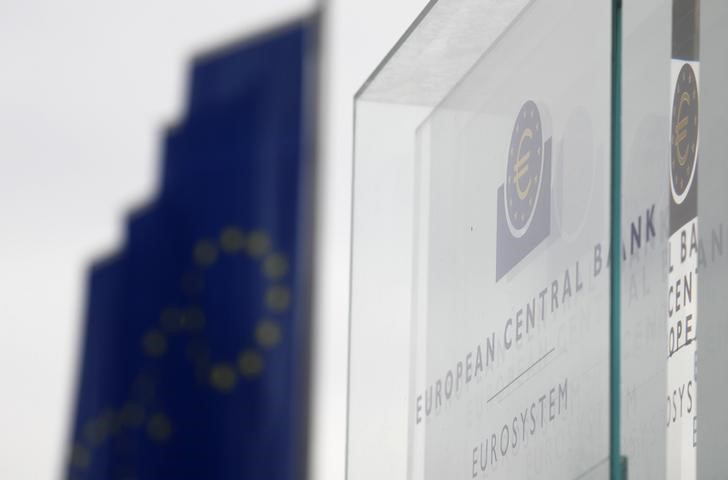(Bloomberg) -- The world no longer needs “extraordinary” monetary stimulus and the European Central Bank should play its part by ending its own bond-buying program after September, according to Dutch central bank Governor Klaas Knot.
“The top priority is to normalize monetary policy and strengthen the economic and monetary union,” Knot, who sits on the ECB’s Governing Council, said as he presented his bank’s annual report in Amsterdam on Thursday. “This is now a widely-shared realization, certainly also in the financial markets.”
ECB officials have signaled that they’re comfortable with investor expectations for bond purchases to be phased out by around the end of this year, though they’ve yet to take a decision. The Governing Council is currently considering how it might change its policy language to avoid any market ructions that could undermine the economy.
Knot acknowledged the need to move slowly, saying the ECB’s balance sheet could stay inflated for years given the intention to reinvest the proceeds of debt holdings under quantitative easing as they mature.
“It’s not unreasonable to look at the U.S., which is in terms of the monetary-policy cycle about three to four years ahead of the ECB, and there the period of reinvesting has lasted for about three to four years,” he said. “All in all, undoing these unorthodox, unconventional instruments could easily last for most of a decade.”
Hawkish View
Bond purchases are set to run at 30 billion euros ($37 billion) a month until at least September, taking holdings to 2.55 trillion euros. Most economists expect buying to be tapered to zero in the final quarter, with an interest-rate increase coming about six months later.
The Dutch governor has long been relatively hawkish and his views may clash with those of colleagues nervous that the currency bloc still isn’t seeing significant wage and price pressures. Inflation in the euro area was just 1.1 percent in February, compared with the goal of just below 2 percent. Data for March are due next week.
Finland’s central-bank chief Erkki Liikanen said earlier this week that exiting from unprecedented stimulus can be more safely done once expectations for consumer-price growth exceed the goal.
The debate on paring back stimulus is complicated by concerns over U.S. protectionism and signs that the euro-area economy has hit a soft patch.
Read more: Euro-Area Economic Confidence Extends Slide Into Third Month
U.S. Price
“The question is if Europe will come with countermeasures which could make us slip into a trade war,” Knot said. “But don’t be mistaken, if the U.S. were to implement trade restrictions on say steel, it will be the American consumer paying the price.”
The U.S. Federal Reserve under Chairman Jerome Powell last week raised borrowing costs for the sixth time since the financial crisis, and has started gradually shrinking its balance sheet. Bank of Japan Governor Haruhiko Kuroda, facing questions on when he’ll begin normalizing monetary policy, has underscored that “powerful” easing will continue.
Knot warned that waiting too long to end stimulus carries the risk of damaging the economy.
“Postponing the necessary monetary tightening is no free lunch,” he said. “Current policy encourages excessive debt accumulation, sustains zombie companies, and thereby undermines productivity growth.”
